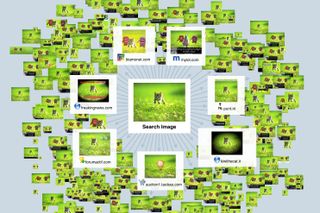Visual search engine set for launch?
New search engine claims to search the internet using pictures, rather than text.

A new visual search engine could help photographers track where their photographs appear on the internet.
The TinEye search engine, developed by Canadian company Idee, allows users to search by uploading a picture rather than typing in a keyword. It then conducts a pixel-by-pixel search across the internet, flagging up all instances of that image even if it's been cropped, merged or digitally altered in some way.
"TinEye does for images what Google does for text," said Leila Boujnane, the chief executive of TinEye. "We are not limited by words, Google can only find an image if a particular search word is in proximity to it. We have the ability on a large scale to tell somebody where one of their images has appeared and how it's being used."
And the technology is not dependent on the quality of the input image, according to Boujnane: "Anything you would consider a preview image or low resolution image would work. I can take a photograph of a picture in the Louvre with my mobile and upload it to TinEye and it would dump me on the page of that Wikipedia page related to that painting."
Unsurprisingly, Boujnane said TinEye could provide an entirely new way for image companies and amateur photographers to track how and where their images are being used, without the need for digital watermarks. To that end the company is launching an alerts service, which will immediately notify a user when their photograph pops up on the net, and a batch search tool which will allow users to search multiple images in one go.
However, Boujnane is keen to point out that the use of the technology is not limited to copyright enforcement.
"It's being used by researchers who need to find where an image came from to provide attribution, even people who are trying to find out who people are in old photos," she said. "We had somebody who had a photograph of a soldier who'd arrived on the beach at Normandy and they couldn't find their name. They did a whole bunch of searches on TinEye and found a tiny little photo on an American website that listed everybody who'd gone to Normandy with a photograph. That's exactly when TinEye is useful, when you have an image but no words."
Get the ITPro. daily newsletter
Receive our latest news, industry updates, featured resources and more. Sign up today to receive our FREE report on AI cyber crime & security - newly updated for 2024.
TinEye is currently in beta, with a focus on expanding an image index which currently stands at "several hundred million", a number growing by a "few hundred million per month."
The company claimed the search engine could come out of beta as early as next month, but in the meantime you can find out more about TinEye here.




